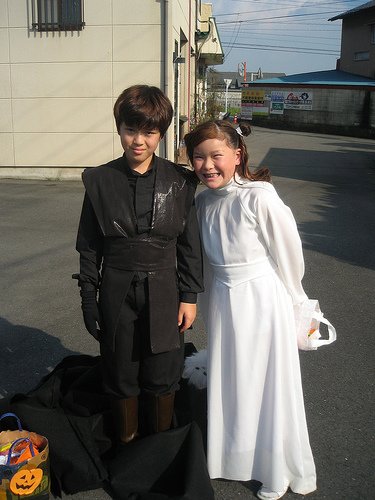There are a lot of good things about living in Japan. Good food, from sushi to sashimi to Indian curry. Wholesome, polite people, with that important “you know no one is horking in your food behind your back” factor. Kawaii Japanese girls. Reading a novel while taking an extended dip in the onsen bath. However, living in Japan is not all cherry blossoms and Mt. Fuji, and there are some downsides to being here too. One of the worst aspects to living in Japan for many is dealing with allergies. We have the Japanese government to thank for much of the problem, for standardizing all forestry around the sugi (Japan Cedar) and replacing natural forests with one easy-to-harvest tree, which means that when it’s time for the trees to pollinate, they do it all at once, creating an unbearable situation for millions of people with allergies. In addition to the awful months of sugi pollen, Japanese homes can be quite high maintenance when it comes to removing dust. Much as I love our tatami mats, they’re very difficult to keep clean, and dust mites love to live inside the fibers — hyakushon!
I wrote recently about Japan’s fixation with the West, which has been a consistent theme in the nation’s history since it began modernizing in the Meiji Period (1868-1912). The phenomenon is known as seiyo suhai shugi, literally “worship of the West-ism,” and it pops up in daily Japanese life in many forms. Most Japanese seem to take it for granted that the culture in the U.S. and Europe, while by no means perfect, is somehow on a “higher level” than Japan, and social and economic reforms generally seem to lag behind the West by about a decade as leaders take their cues from the U.S. and Britain. One way this fascination with the West manifests itself is the burning desire in many who have achieved a certain level of success in their fields to translate that success over to the West. When business leaders believe they’ve finally “arrived” and have achieved whatever goals they’d set for themselves, many invariably decide to expand into the U.S. market, and since this is driven by their own personal desire to “make it” in the USA rather than on dispassionately collected market data, it can lead to less than optimal results. Hideo Nomo changed the sports world forever when he proved that a Japanese could make it in Big Leagues, and now top players in every sport from Ichiro and Matsui to Nakamura kicking the ball over in Ireland feel incomplete if they don’t play overseas. Likewise, it seems that once a Japanese singer attains a certain level of success, they’ll often start to pine for a U.S. debut. This is what 80s superstar Seiko Matsuda did, trying to bill herself as the “Japanese Madonna” in her U.S. release, complete with her wearing an exact replica of the “Lucky Star” outfit on the CD cover. The most recent Japanese artist to try to make it in the West is Utada, aka Hikaru Utada, who recently released an all-English album for fans outside of Japan. I’m a longtime fan of her songs, and I hope it works out for her.
One of the more famous recent images of Japan are its “love hotels,” those interesting establishments which provide privacy for couples who would otherwise have no place to go to be alone. They’re known by many names, including avec, tsurekomi yado, and motel (which causes plenty of confusion when Japanese go to the U.S. for the fist time), but the industry seems to be encouraging the term “fashion hotel” to promote a more positive image for the 21st century. For $40 (a 3 hour “rest”) or $80 (an overnight “stay”), couples can enjoy an intimate experience with total privacy, complete with separate elevators for incoming and outgoing guests and a pneumatic tube system that lets you pay without ever meeting anyone. Generally located around the outskirts of Japanese cities or near freeway on-ramps, love hotels are often centered around a theme, like the Taj Mahal or Cinderella’s Castle or Alcatraz Prison. (I’m holding for a room based on the final scenes from 2001: A Space Odyssey, complete with Monolith and space pod.) While the pragmatic concept of love hotels might seem odd to some, I believe they serve an important role in society here, and even help keep families from disintegrating. In the U.S., an eighteen-year-old boy who gets a girlfriend has an incentive to move out with her, perhaps making mistakes that both will regret down the road. But in Japan, where kids stay in the nest well into their 20s (and if they’re the oldest son or daughter, live with their parents forever, taking over the family home and business, if there is one), everyone has access to all the privacy they could need.
J-List carries an excellent line of original T-shirts and super-soft hoodies featuring amusing kanji messages and cool anime designs, which are great for anyone on your holiday list. We carry XXL and XXXL sizes of some of our major shirts, so our larger customers can get in on the run, too. We’re happy to announce that we’ve lowered the prices on these extra sizes, to just $1 for the XXL shirts, and $2.50 for the 3XL shirts.















